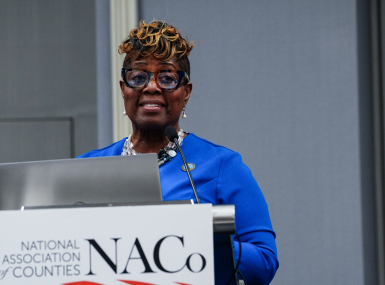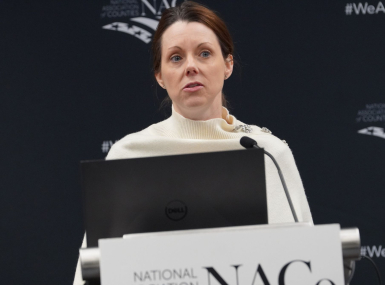Support the Child Care and Development Fund (CCDF)

Author

Emma Conover

Kevin Moore
Upcoming Events
Related News
ACTION NEEDED
Urge your Members of Congress to increase resources under the mandatory and discretionary titles Child Care and Development Fund (CCDF) program.
BACKGROUND
CCDF is the federal government’s funding source for child care subsidies to help eligible low- income families access child care and improve the quality of child care for all children. Last reauthorized in 2014, CCDF is comprised of both a mandatory component (not subject to the annual appropriations process), the Child Care Entitlement to States (CCES) and a discretionary portion, the Child Care and Development Block Grant (CCDBG), which Congress must fund every fiscal year. In Fiscal Year (FY) 2024/2025, CCDBG received $8.75 billion and CCES received $3.5 billion for a total of $12.35 billion in CCDF funding.
County governments are responsible for administering CCDF in at least eight states, according to the most recent available state plans: Colorado, Minnesota, North Carolina, North Dakota, New York, Ohio, Virginia and Wisconsin. In FY 2025, these eight states represented $2.2 billion in federal expenditures (25 percent). County governments in these states may set policy related to eligibility, sliding fee scales, and payment rates as well as perform eligibility determinations, issue provider payments, connect parents with child care and more. Counties administering CCDF may contribute county general revenue funds to help meet the required non-federal match for the CCES.
Ensuring low-income families have access to affordable, high-quality child-care helps promote their participation in the workforce and/or education, while also encouraging positive child development. However, limited program resources, strict eligibility rules, infrastructure needs and expensive quality standards can challenge the ability of counties to meet the needs of local parents.
KEY TALKING POINTS
- The Child Care and Development Fund (CCDF) is the federal government’s funding source for child care subsidies to help eligible low-income families access child care and improve the quality of child care for all children.
- Eight states delegate CCDF funding and administration to county governments: Colorado, Minnesota, North Carolina, North Dakota, New York, Ohio, Virginia and Wisconsin.
- Access to high-quality, affordable child care is critical for promoting positive child development as well as encouraging workforce participation and access to education for low-income parents.
- Limited program resources, strict eligibility rules and expensive quality standards can challenge the ability of counties to meet the needs of local parents through CCDF.
- Counties urge Congress to provide increased funding for both the mandatory and discretionary titles within CCDF to help us meet quality standards, invest in child care infrastructure, boost supply and serve eligible families.
- Congress should provide counties with increased authority to set income eligibility, establish sliding fee scales and determine other eligibility factors related to work and education to best meet the needs of local families.





